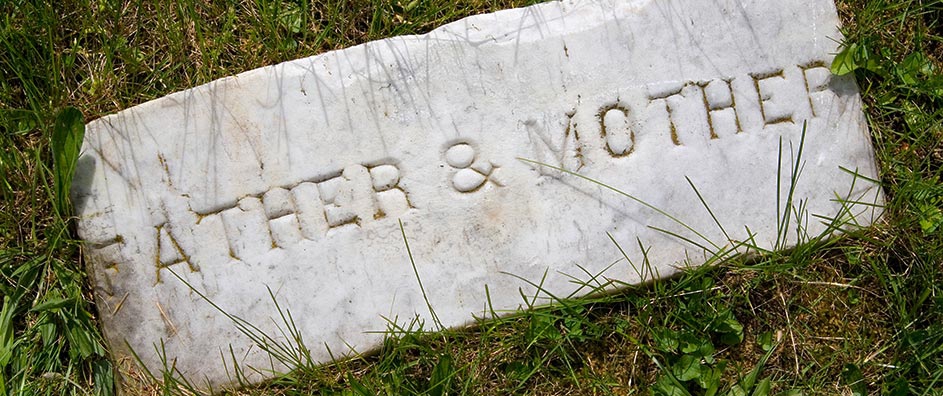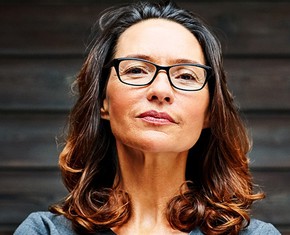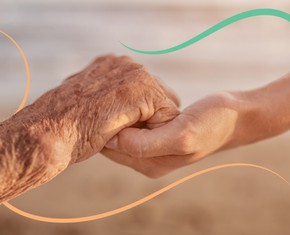The views expressed in our content reflect individual perspectives and do not represent the authoritative views of the Baha'i Faith.
Of what avail are the things which are yours today and which tomorrow others shall possess? – Baha’u’llah, The Summons of the Lord of Hosts, p. 103.
My mother died four years ago, and my father followed shortly afterwards. That’s how my sister and I found ourselves cleaning out their home.
Have you had to tackle that task yet? It’s a sobering experience, and a potentially life-changing one.
My parents were humble people. Both were bright, yet neither of them had good educations. They grew up during the Depression, making do with very little. They had worked all their lives for relatively modest pay, so they didn’t have much in the way of possessions or material wealth as they aged. When they passed away, after more than six decades of marriage and five children, my sister Cass and I got the job of cleaning out their home and selling it.
 If you’ve ever had to deal with the material possessions of loved ones after they’ve passed away, you know how difficult it can be. Every item has a memory behind it. Personal effects–clothes and prized photographs and favorite things–all come loaded with feelings. A color, a texture, even a smell triggers the remembrance of an important moment or emotion. You’re tied to those things by your own history, with the strings that bind us all to the past. When you love someone and they depart, the material things they leave behind can bring up so much sentiment that it seems your heart will break.
If you’ve ever had to deal with the material possessions of loved ones after they’ve passed away, you know how difficult it can be. Every item has a memory behind it. Personal effects–clothes and prized photographs and favorite things–all come loaded with feelings. A color, a texture, even a smell triggers the remembrance of an important moment or emotion. You’re tied to those things by your own history, with the strings that bind us all to the past. When you love someone and they depart, the material things they leave behind can bring up so much sentiment that it seems your heart will break.
Personally, I had a very hard time with the chore. I thought, going in, that I’d want to keep several of my parents’ things—not because they had many materially valuable possessions, but because I initially felt I wanted to hold on to a few physical objects that would remind me of them. But as I went through their house, I realized I didn’t really want anything. I quickly felt, deep in my soul, that nothing physical, nothing they owned, held any real importance for me any longer. It seemed like I only wanted to remember their essence, their spiritual qualities, the love they gave us, their true selves. No material thing, I understood, could possibly act as a stand-in for their spiritual attributes.
But when we finished, I did decide to inherit just one thing—a simple, wooden-handled, triangular pie server that my mother used for many years to serve us kids our annual slice of birthday cake. I kept it because it symbolized, more than anything else she owned, her affection and love. I can still see, in my mind’s eye, her hand on that server, as she put a piece of homemade cake on my plate and smiled.
My sister said “Are you sure that’s all you want?” She got the photo albums, so I looked around and said “Yes, that’s it. I can’t do this. Let’s hire someone to come in and clean it out.” So we did.
The experience reminded me of one of my favorite passages from the Baha’i teachings, which comes from a conversation Abdu’l-Baha had in New York City in 1912 with a wealthy Baha’i attorney named Howard MacNutt. As they drove through the city, Abdu’l-Baha looked out at it and said:
Shall any of these things you are now looking upon remain or endure? If you possessed all you could wish for–these great buildings, wealth, luxury, the pleasures of life in this world–would any of these things increase your eternal happiness or insure you everlasting existence? I am summoning you to the world of the Kingdom. I am calling you away from this world. Nothing you can ever think of here will remain. You, yourself, will pass away as the roses wither at the touch of winter’s breath. I wish for you heavenly happiness. I am praying that the confirmations of God may descend upon you, that you may become His servant, that you may go forth to save mankind from the bondage of this mortal world. I wish you to escape from this hell of materialism. Be not occupied with material things. – Abdu’l-Baha, Star of the West, Volume 3, p. 210.
So then, when I returned home from dealing with my parent’s possessions, it seemed like I suddenly developed a new and different outlook on this physical phase of life. Three things occurred to me:
First of all, I often thought after my mother and father had passed away, I’m now an orphan in this world. For the first time in my life, I had no living parents. This was new. They had passed the torch of this physical life to me, and gone on to the next world. That realization hit me very hard. When your parents are alive, you always feel, in some ways, like you have their wisdom and life experience and history and emotional support to access, turn to and fall back on—but when they’re gone, you understand you must now serve that purpose for your own children and their children. It strikes you with great force that you, too, will one day be gone from this physical plane of existence.
Second, when I got home I looked around, and saw my own material possessions in a new light. I imagined my own children going through them and cleaning my home after my wife and I pass on, and it made me realize that I could no longer be “occupied with material things,” as Abdu’l-Baha advised. So we sat down and wrote our will. In it, my wife and I parceled out the things we own to our children and loved ones. That act gave me an enormous and very liberating sense of detachment. From that moment until now, when I sit on a piece of furniture or look at a clock or read a book, I know that it doesn’t “belong” to me at all. Instead, I could envision it, at some point in the future, being used by my progeny.
Finally, as the Baha’i writings recommend, I resolved to pray for the progress of my parents’ souls daily:
…a father and mother endure the greatest troubles and hardships for their children; and often when the children have reached the age of maturity, the parents pass on to the other world. Rarely does it happen that a father and mother in this world see the reward of the care and trouble they have undergone for their children. Therefore, children, in return for this care and trouble, must show forth charity and beneficence, and must implore pardon and forgiveness for their parents. So you ought, in return for the love and kindness shown you by your father, to give to the poor for his sake, with greatest submission and humility implore pardon and remission of sins, and ask for the supreme mercy. – Abdu’l-Baha, Some Answered Questions, p. 231.
You May Also Like
Comments

















The photos mean the most to me.
Thank you David for bringing another tear to my eyes...awaiting all your thoughts.